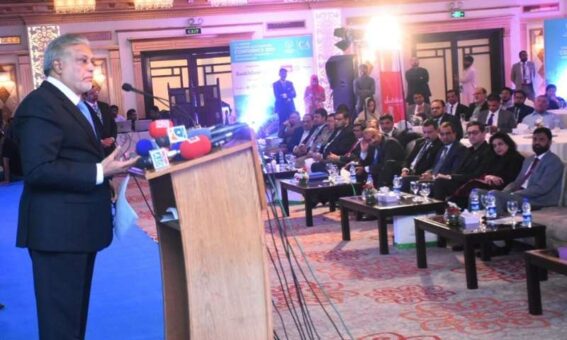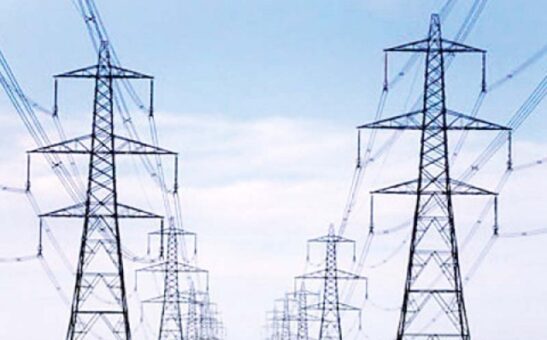ISLAMABAD: Finance Minister Mohammad Ishaq Dar on Wednesday said there was no question of Pakistan going into default as the same had been averted, though at a very high political cost.
“I want to give a message to markets through this conference… no need to get nervous, we are back to business, Insha’Allah we will arrange everything. Nothing is to worry,” the minister said while addressing here the All Pakistan Chartered Accountant Conference.
READ MORE: Pakistan’s forex reserves continue to fall; deplete to $13.25 billion
He said Pakistan would be fine and nobody should have any problem because “Pakistan will not default”. There were serious challenges the country had been facing, however, the incumbent government had rescued it from default although it had to give a very high political cost.
“If there is a choice between state or politics, the priority should be the state and not the politics as if the country is there, there may be politics. If there is no county where there will be politics?” he asked.
Ishaq Dar said Pakistan would require around $32-34 billion to fulfill its liabilities and financial needs for the fiscal year 2022-23. “These include around $22 billion multilateral-level debt liabilities and around $12 billion current account deficit.”
He, however, vowed that the government would work hard to fulfill the sovereign guarantees to save the country’s pride.
The minister once again clarified the government’s position about rescheduling of the Paris Club’s debts. He said soon after assuming the charge of finance ministry, he had announced that the government would not approach the Paris Club for rescheduling of loans.
READ MORE: Home remittances decline to $7.68 billion in 1QFY23
Likewise, he also rejected the speculations about extending bond maturity dates beyond December 2022. Pakistan, he said, was a sovereign country so it should meet its obligations in time for its own credibility and honour.
He urged the chartered accountants to play their role and influence politicians to work for the betterment of national economy.
Ishaq Dar said Pakistan had deep challenges which were further increased by the devastating floods. He, however, was confident that everything would be corrected as was done back in 1998-99 and 2013, when the country was facing similar challenges.
He said in its last tenure, the Pakistan Muslim League-Nawaz government had put the economy on growth path and it was predicted that it would be become the 18th big economy, leaving behind Canada and Italy, however, due to political interest of some parties it could not be done.
Had the political parties joined the hands together, the country would have achieved the target of becoming the 18th big economy by 2026, however due to political instability, it now stood at 54th position, he lamented.
He had always favoured a ‘Charter of Economy’ that would help put the economy on a sustainable growth path, he remarked.
The minister said the PML-N assumed power in 2013 at a time when the country was facing serious macroeconomic challenges and its was predicted to be going in default in six to seven months.
However, the government fixed the problems and took the economy towards growth, he added. The whole world acknowledged the progress at that time while the country’s ratings went up, the Consumer Price Index (CPI) based inflation was recorded at 4 percent and food inflation at 2 percent. The country had stable currency around Rs104 in parity with dollar and had reserves of around $26 billion.
READ MORE: Moody’s downgrades Pakistan rating to Caa1 from B3
Had that journey been allowed to continue, the country would have become the member of G20 club and 18th big economy, the minister said.
Replying to a question, Dar said that in 2013 Pakistan was on the virtual black List of FATF and due to the hard work by the then PML(N) government, the country was moved into the grey list in 2014 followed by the white list in 2015.
“I had done my projection for the economy and the prime minister is better aware of it,” he said, adding that the government was working on his projections to revive the economy.
To a question, he said the previous government impeded the CPEC projects which led to its increased cost.
READ MORE: Rupee plunges to PKR 220.88 against dollar in interbank
Dar said the inflation did not surge all of a sudden rather it was due to the incompetence of the previous PTI government over the last four years, pushing the country to the prevailing situation.
However, he added, the incumbent government was working to stabalize macroeconomic indicators to control the inflation.
The minister said the dollar appreciated artificially which would be brought down to its natural value below Rs 200.







